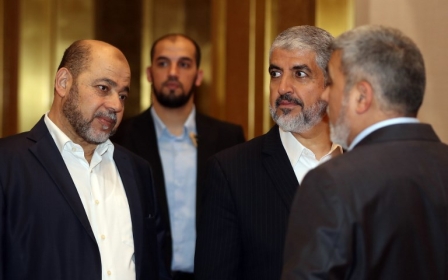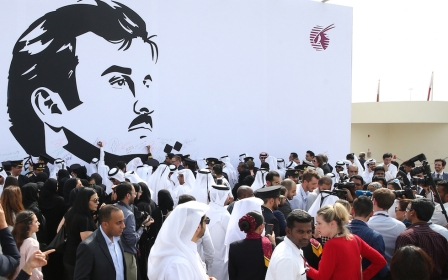Arabic press review: Happy Sadr, and close encounters of the secular kind
Royal rumble over Saudi 'secularism'
Saudi royals launched a scathing attack on the ambassador of the UAE in Washington after he told a US news channel that his country and Saudi Arabia wanted a more secular Middle East, the London-based newspaper al-Quds al-Arabi has reported.
Fahda bint Saud bin Abdulaziz, a Saudi princess, said Yousef al-Otaiba's comments to PBS were a conspiracy against Saudi Arabia and Islam.
Abdul Aziz bin Fahd, the son of late Saudi king Fahd, published recordings of Saudi Arabia’s top religious clerics warning of the danger of secularism, which they referred to as an "infidelity".
Otaiba told the American channel that what Saudi Arabia and the United Arab Emirates want for the Middle East is "secular governments".
Saudis make Sadr happy
Lebanese newspaper al-Akhbar, which is close to Hezbollah, described the visit of Iraqi Shia cleric Muqtada al-Sadr to Saudi Arabia as a "political bomb" that would make public the secret relationship between the two sides.
The newspaper reported analysts as saying the visit was the culmination of "long efforts of coordination between Riyadh and Sadr".
Sadr was photographed meeting the crown prince of Saudi Arabia, Mohammed bin Salman, in his first visit to the country in 11 years.
Algeria and the Gulf
Algeria's foreign minister, Abdelkader Messahel, is touring eight Arab countries, in an effort to mediate in the Gulf crisis, according to the Algerian newspaper al-Chorouk al-Youmi.
"Since the beginning of the crisis, Algeria has called on the concerned countries to adopt dialogue and good-neighbourly policy and have refused to support any party," the newspaper added.
Israeli guard unmasked
The Jordanian newspaper al-Ghad published a picture of an Israeli who killed two Jordanian citizens in the Israeli embassy in Amman, and said he had a "diplomatic identity" issued by the Jordanian foreign ministry.
The newspaper published a picture of the man's diplomatic identity, showing his photo for the first time and revealing that his full name as "Ziv Hay Mordechai Moyal".
He was an "attache" in the Israeli embassy in Jordan.
* Arabic press review is a digest of reports that are not independently verified as accurate by Middle East Eye
New MEE newsletter: Jerusalem Dispatch
Sign up to get the latest insights and analysis on Israel-Palestine, alongside Turkey Unpacked and other MEE newsletters
Middle East Eye delivers independent and unrivalled coverage and analysis of the Middle East, North Africa and beyond. To learn more about republishing this content and the associated fees, please fill out this form. More about MEE can be found here.




